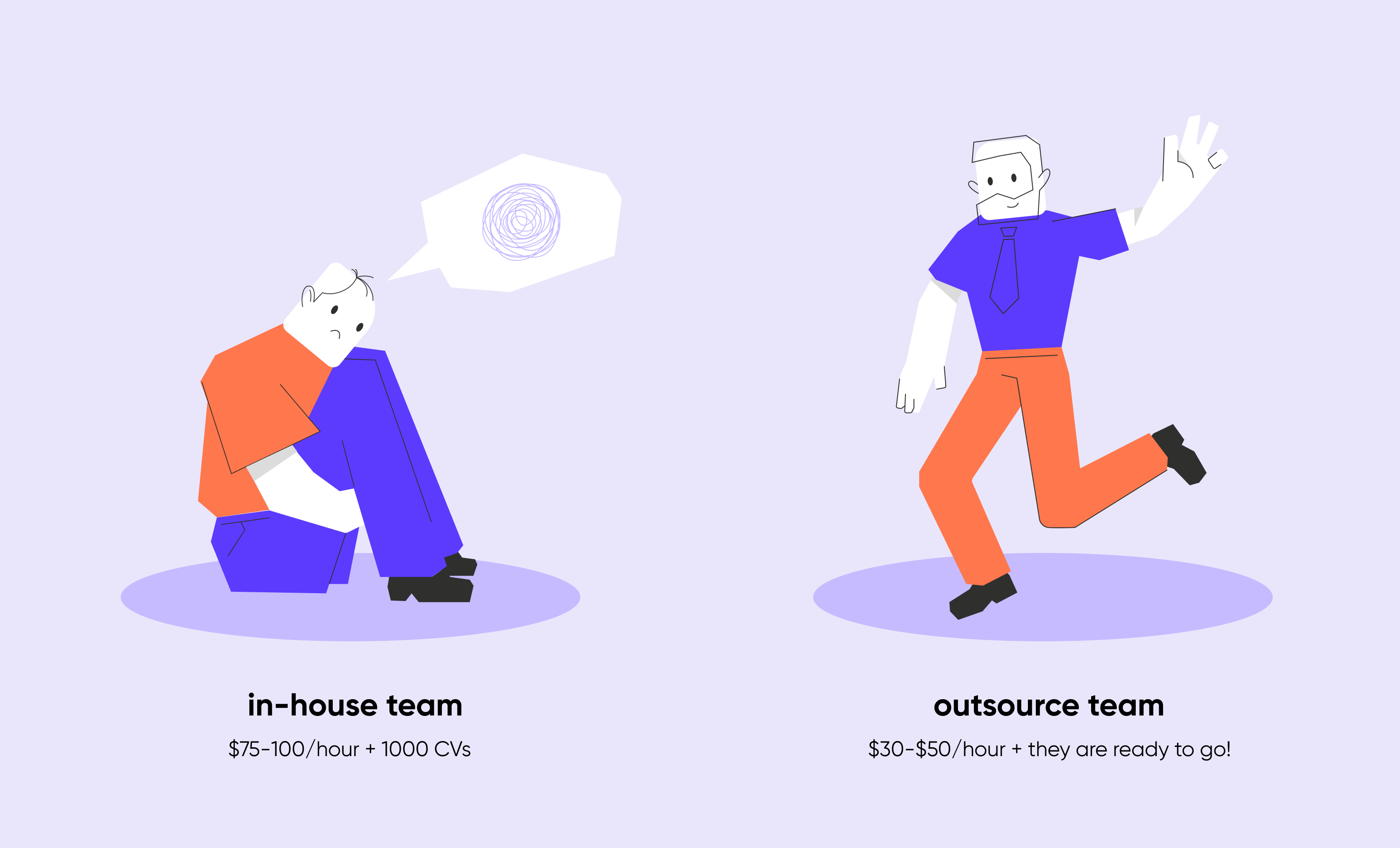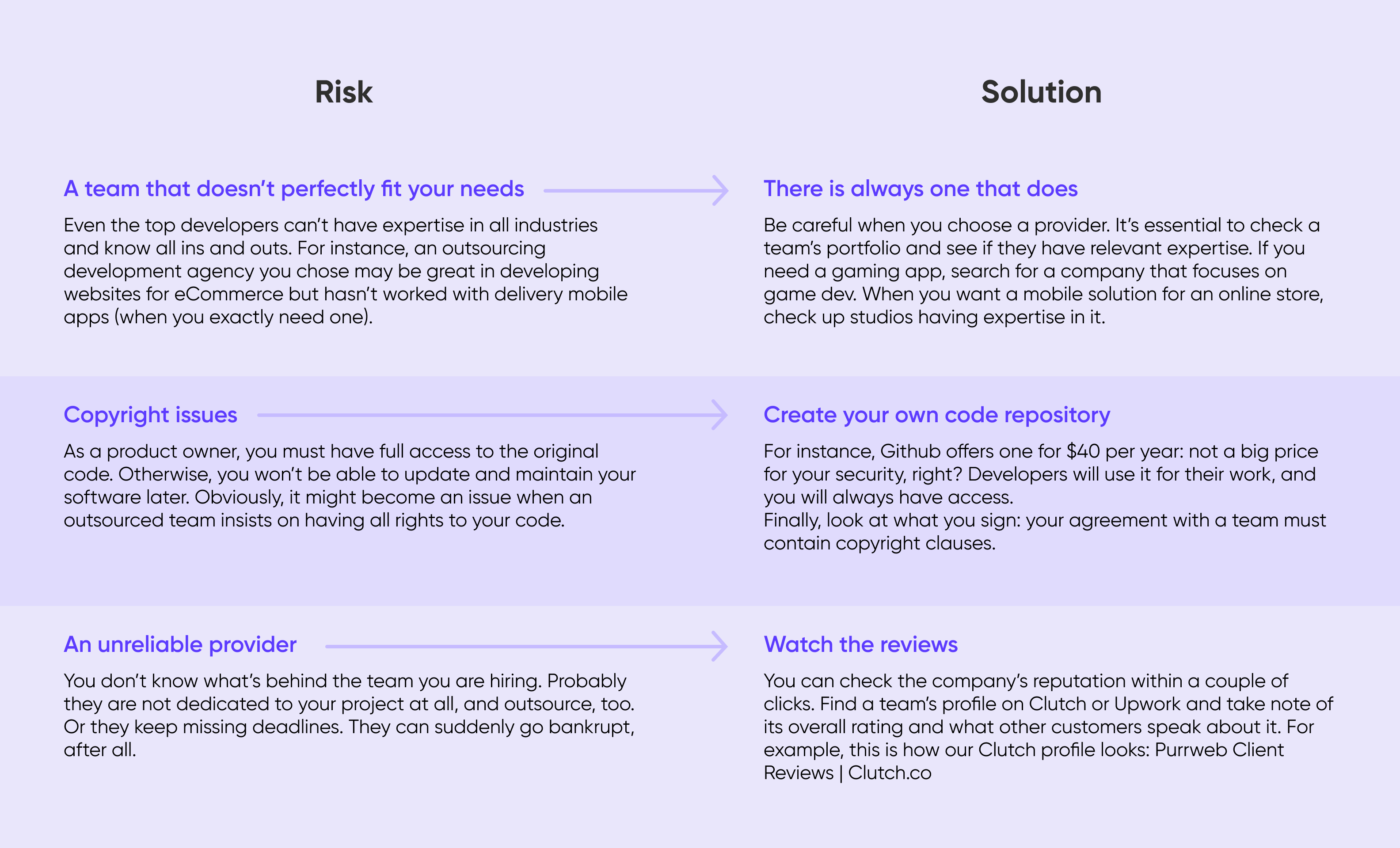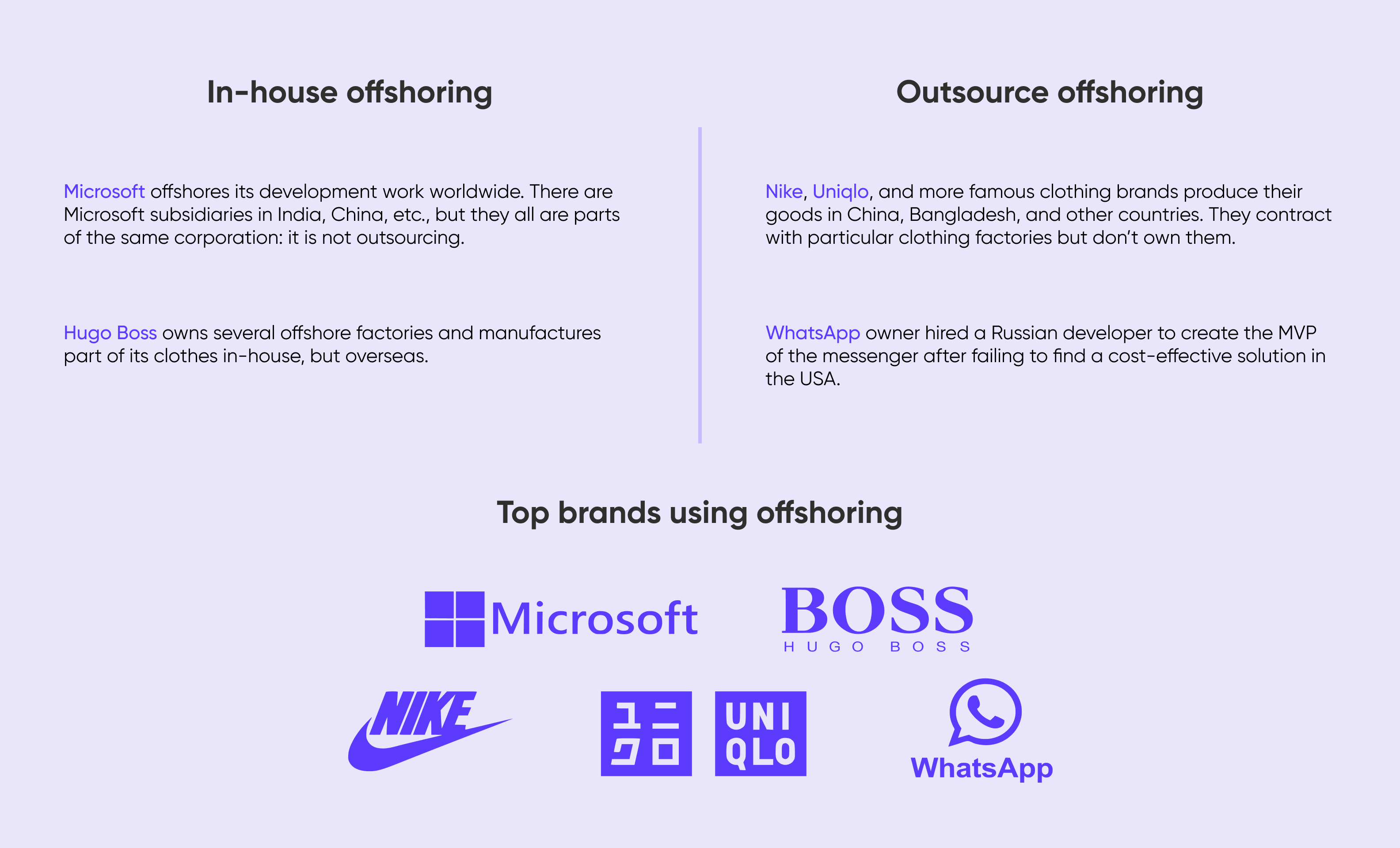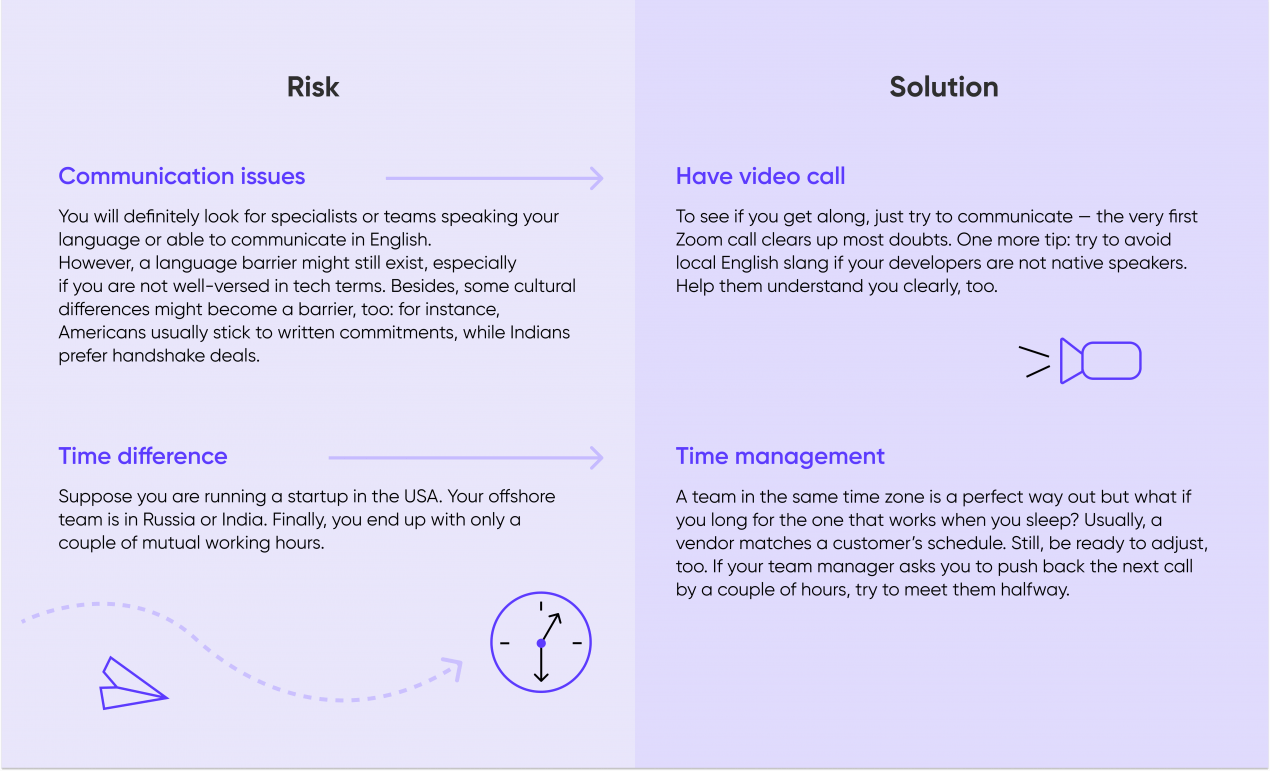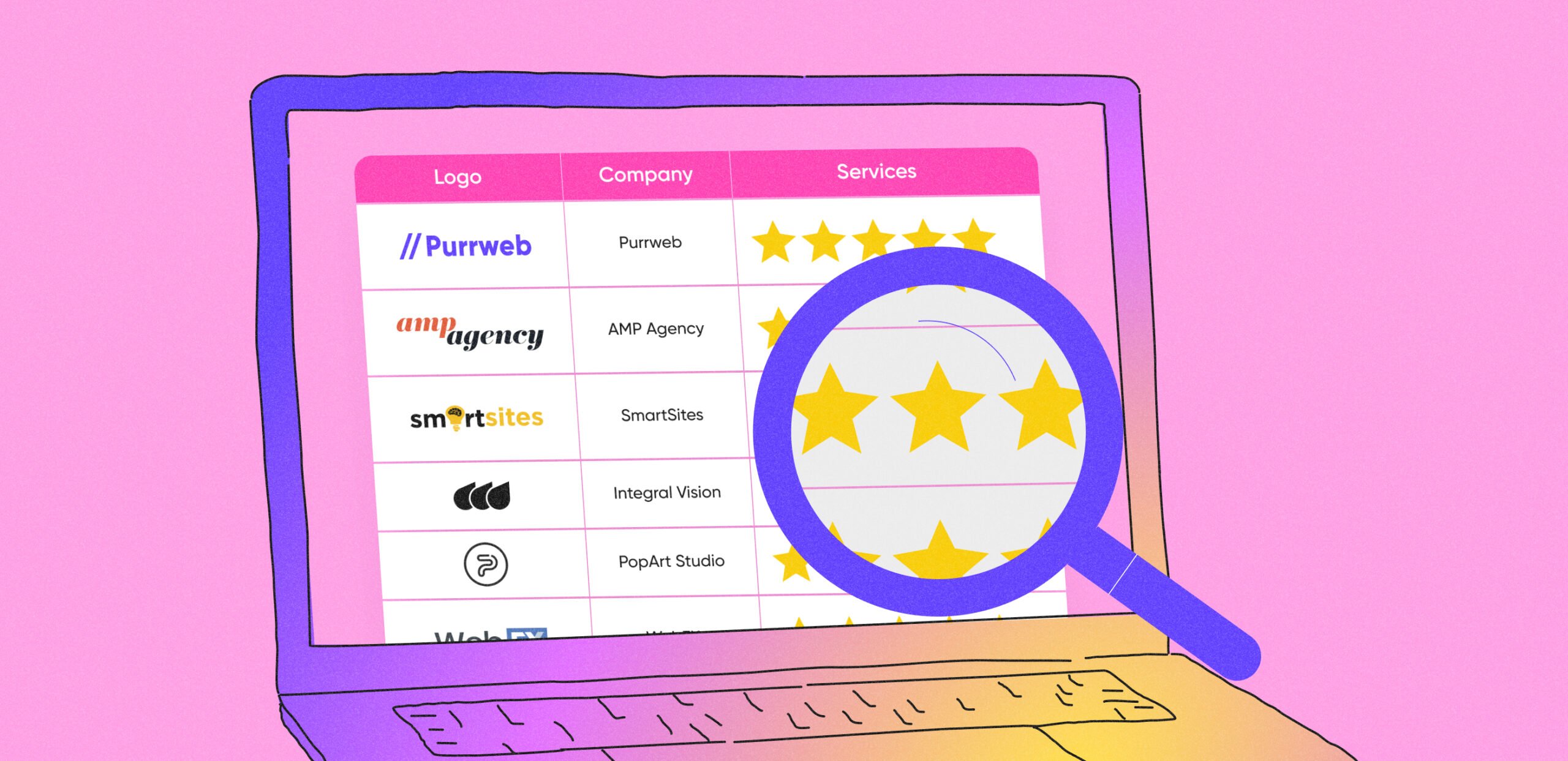Outsourcing: delegating some tasks
To start, we’ll speak about outsourcing and how it works.
Outsourcing means hiring a specialist or a team that is not a part of your company: some third-party vendor
Instead of searching, onboarding, and paying a monthly salary to a new employee, you delegate particular tasks to another company or a freelancer.
Let’s look at three simple examples:
- When a hotel owner invites housekeepers from a cleaning agency, they outsource;
- When a clothing brand has in-house designers and sales managers but entrusts sewing clothes to a third-party factory, it outsources, too;
- When a startup owner wants to create an MVP and finds a software development company instead of hiring their own team, it means they also opt for an outsourcing model.
Why do people outsource?
One of the main reasons for outsourcing mobile development — it saves time and money.
Suppose a startup needs to launch an MVP mobile app and show it to investors within the shortest possible time. A startup owner doesn’t know much of the tech side of the development process: they only have an idea of the future product. What is more, they are not sure a project will be successful after all and can’t guarantee a long-term stable job to prospective employees.
Besides, a startup is often limited in funds. An average annual salary of an in-house IT employee in the USA is $75,971: imagine how much you need to invest overall? Add costs for recruitment services, benefits, and tax: it makes a tidy sum, not speaking of efforts for launching a team.
Outsourcing mobile development solutions saves you nerves: you choose a provider, explain your idea to a project manager of an outsource team, and sign a pricing agreement with significantly lower rates. It can be an hourly payment with $30-$50 per hour instead of $75-$100 or a fixed price.
Large businesses use outsourcing development, too. For instance, Citigroup, one of the largest financial companies, outsourced about 11,000 jobs, including IT development positions, in 2014. It resulted in saving $1.1bn of the annual expenses Sounds inspiring, doesn’t it?
Outsourcing enables quicker and cheaper solutions compared to in-house teams
An in-house specialist would require a stable salary and some benefits package — no matter how much they really do. If we are talking about offshore vs outsourcing, outsourcing development allows you to stay more agile. For instance, if you outsource delivery services, you can engage couriers only when you need them, saving money on permanent employees.
Besides, hiring new staff and building all workflows from scratch may take months. When you outsource, you delegate your tasks to a ready team that has already achieved harmony in work and knows its way around. Of course, it works out if you find the right team😉
Outsourcing risks
Outsourcing software development services seems a great solution by all odds. Still, everything has some risks, and outsourcing is not an exception. Luckily, it’s in your hands to minimize these risks, so we gathered the three most common ones with tips on how to not foul up.
Offshoring: developing software abroad
What is offshoring, then?
When you offshore, it means you get work done in a different country
In other words, offshoring is having either in-house staff or an outsource team abroad. Yes, offshoring can be also about hiring your own employees that will be a part of your team, despite location.
Let’s compare both options in the context of popular brands to make it clearer.
Why do people offshore?
Like outsourcing, offshoring saves money. What is more, if we consider offshoring vs outsourcing, offshoring can cut costs even better than outsourcing software development services in your country.
We already mentioned that a developer in the USA requires an $80-$100 payment per hour. Compare it with, say, Russia with its average hourly rate of $30-$40 and it turns out that an American business can save more than half with offshoring. A cool addition: the specialists’ level is not at all worse — otherwise, would Google or Microsoft hire them? Thus, whatever you choose — hiring an in-house foreign team or offshore outsourcing — software development abroad can be cheaper in about two times.
Besides, offshoring vs outsourcing expands the talent search: why limit your recruiting opportunities to a single neighborhood? Hunting tech employees is challenging, no less. The USA and other developed countries suffer from a significant lack of IT talents, so no wonder offshoring comes to the rescue. Offshoring solutions broaden the possibilities: Russia, Ukraine, India, and other countries are homes to thousands of experienced developers.
Again, you can make the most of this advantage with both offshoring options: when you build your own team, and when you look for an outsourcing vendor abroad. When you want to opt for outsourcing mobile development, you can look for agencies in other countries: there are plenty of ready teams willing to work with foreign clients.
Offshoring vs outsourcing kills two birds with one stone: helps to hunt high-level specialists and hire them as full-time or outsource staff at much lower rates.
Offshoring risks
Offshoring implies almost the same risks as outsourcing software development services. Still, when you deal with a team abroad, you might face two more issues: here they are in the table below.
Offshoring vs outsourcing mobile development: what is better for my business?
It turns out that outsourcing and offshoring are not totally opposite terms. Sometimes, they can be synonymous: when you hire a foreign third-party team, you both offshore and outsource. But still, you can also go the in house team route, just make sure you know all the differences of in house development vs outsourcing.
So, an offshore vs outsource team: which one will better fit your needs? Obviously, it depends on what exactly you need.
- If you want to reduce software development costs and ensure privacy or internal control at the same time, it’s better to consider in-house offshoring. Still, keep in mind: it requires expertise in hiring, managing, and maintaining an IT team, so it’s not probably the best way for a startup at the earliest stage.
- Suppose you know little about the tech side of software development. You can’t write detailed requirements for an IT team, and the hiring hassle creeps you out. Domestic or offshore outsourcing development might become a way to go. Just make sure your outsource team is well up in MVPs and can prove it.
- When you need to develop an MVP but have a limited budget, again, you’d better turn to outsourcing. An offshore outsourcing team might help you save even more than a local one.
- If you are struggling to find software development professionals in your country, both offshoring options are the way out: there is a plethora of seasoned designers and developers abroad.
You read it through and feel inspired to go partners with an offshore outsourcing development team? We are ready to help you! Our full-cycle development team will be dedicated to your project and build the MVP from scratch within 3 months. Don’t worry, we won’t expect you to give us any precise tech tasks: just share your idea and we’ll find the best solutions to bring it to life.


